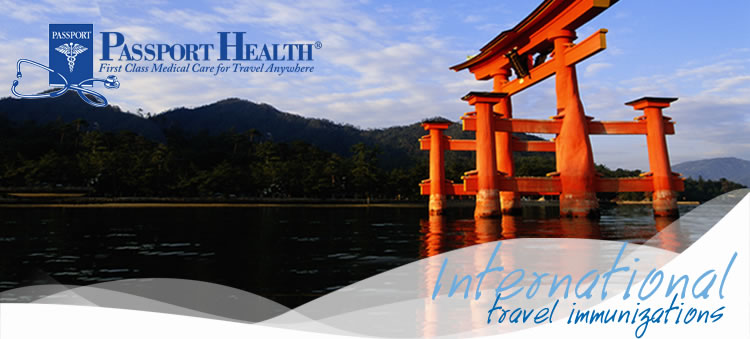
Malaria in humans is caused by one of four protozoan species. All species are transmitted by the bite of an infected female mosquito. Occasionally Malaria transmission occurs by blood transfusion or congenitally from mother to fetus.
Signs and Symptoms of Malaria
Malaria is characterized by fever and flu-like symptoms, including chills, headache, body aches and fatigue; these symptoms may occur at intervals. Malaria may be associated with anemia and jaundice, and may cause kidney failure, coma and death. Deaths due to Malaria are preventable. The estimated risk of a traveler acquiring Malaria varies markedly from area to area. A Passport Health Travel Medicine Specialist will help you to determine your risk and Malaria prevention measures.
Protective Measures Against Malaria
Because no currently available drug regimen guarantees 100\% protection against Malaria, prevention of infection requires taking antimalarial medication as directed in addition to prevention of mosquito bites. Mosquitoes that carry Malaria have nocturnal feeding habits, thus Malaria transmission occurs primarily between dusk and dawn. Measures to reduce mosquito contact during critical hours include:
•Remaining in well-screened or air conditioned areas
•Using mosquito nets treated with Permethrin
•Wearing clothing that covers most of the body and has been treated with Permethrin
•Using insect repellents containing appropriate levels of DEET
•Using insecticides in living and sleeping areas where appropriate
Passport Health carries CDC and WHO recommended insect repellents for purchase.
Antimalarial Drugs
Most antimalarials act in the bloodstream to suppress clinical symptoms by inhibiting parasite development in red blood cells. Regardless of duration of stay in a Malarious area, antimalarials should be taken by all travelers. The regime for all Malaria medications include the need to be taken before arrival, during the visit, and after departure from a Malaria risk area. This approach assures adequate blood levels of the drug, enables the traveler to switch to another drug in the event of side effects and gets the traveler in the habit of taking the drug on a regular basis. Because antimalarials do not actually prevent the disease, continued dosing with antimalarials after departure from an endemic area ensures that the drug will kill any lingering parasites. A Passport Health Travel Medicine Specialist will counsel you on recommended antimalaria medications specific to your travel destination. Antimalaria medications may be prescribed for you by the Travel Medicine Specialist and many locations may have antimalaria medications available for purchase.
Follow-Up
Regardless of the drug regimen used, it is still possible to contract Malaria during travel and to become ill following departure from a malarious area. Travelers should seek medical attention as soon as possible if a fever illness develops during a trip or the first year following exposure. Malaria may be fatal if treatment is delayed.
So, if you are asking yourself, "what travel shots do I need? or where to get the Malaria vaccine", call 732-345-0029 for your appointment today!
www.passporthealthnj.com
